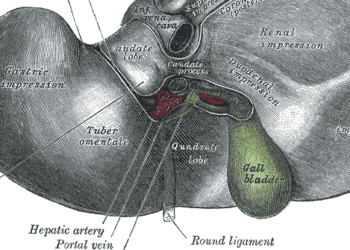Adding Evolocumab to statin therapy further decreases LDL-C levels
Image: PD
1. When paired with statin therapy, evolocumab greatly reduced patient low-density lipoprotein cholesterol (LDL-C) levels compared to placebo or ezetimibe.
2. Evolocumab paired with statin therapy reduced LDL-C levels in patients independent of statin type or treatment intensity across the three most common statins.
Evidence Rating Level: 1 (Excellent)
Study Rundown: Nearly 14% of Americans over 20 years of age suffer from high LDL-C levels, for which statins are the primary treatment. High levels of LDL-C are associated with increased risk of atherosclerotic cardiovascular disease and in patient cases where statins fail to adequately lower LDL-C, alternative measures are often advised. A number of non-statin therapies have been shown to reduce LDL-C levels in patients, including ezetimibe – the most commonly prescribed non-statin therapy for hypercholesterolemia. Recent concerns have arisen as to the effectiveness and safety of Ezetimibe and alternative therapies are being explored.
This study examined the capacity of evolocumab, a human monoclonal antibody against PCSK9, for reducing LDL-C levels in patients. When paired with statin therapy, evolocumab was more effective than ezetimibe or placebos in lowering patient LDL-C after 12 weeks. This finding held across three different statin types, two evolocumab dose regimes (every two weeks or monthly), and variable initial LDL-C levels. The brevity of the patient trial did not allow for assessment of the long-term effects of evolocumab on cardiovascular disease and overall patient health. Additional trials to investigate long-term safety and efficacy of evolocumab will further assess its value as a therapy for hypercholesterolemia.
Click to read the study in JAMA
Relevant Reading: Efficacy and safety of more intensive lowering of LDL cholesterol: a meta-analysis of data from 170 000 participants in 26 randomized trials
In-Depth [randomized controlled trial]: This trial was a phase 3 multicenter randomized controlled trial investigating the efficacy of evolocumab in combination with statins for lowering LDL-C levels. Between January and December of 2013, 1896 patients with primary hypocholesterolemia and mixed dyslipidemia underwent non-statin therapy and were included in the analysis. Prior to the study, 29% of patients were on intensive statin therapy, while 41% were on nonintensive statin therapy and 30% were on no statin therapy. Previous treatments were halted and patients were segregated, via a 2-step randomization process, into 24 treatment groups that encompassed variations of statin type (atorvastatin, simvastatin, rosuvastatin), statin dose intensity (moderate or high), non-statin therapy type (evolocumab, ezetimibe or placebo), and evolocumab dosage frequency (every two weeks or monthly). LDL-C levels at the mean of weeks 10 and 12 and at week 12 were attained by the Friedewald formula or in very low LDL cases (< 40mg/dL) by preparative ultracentrifugation. For coprimary endpoints, LDL-C end values were compared to baseline values to provide mean percent change from baseline. Two-sided significance testing was used to compare results across treatment groups.
Monthly dosing of evolocumab reduced LDL-C levels (mean of week 10 and 12) by 62% to 65% from baseline values and by 63% to 75% from placebo values. Within a statin treatment group (atorvastatin), evolocumab reduction of LDL-C was significantly greater than placebo or ezetimibe (P < 0.001). Where evaluated, findings were similar across statin therapy variables (type and intensity), evolocumab dosage schedule, and LDL-C measurement (week 12 or mean of week 10 and 12). Adverse event frequency and type did not vary greatly across non-statin therapies.
More from this author: Genetic variant linked to poor patient survival following lung transplantation, Genetic variations may predict outcomes for colorectal cancer patients, Neuroendocrine tumor marker pancreastatin may be predictive of survival, Initial kidney transplant factors may provide insight into retransplant success
©2012-2014 2minutemedicine.com. All rights reserved. No works may be reproduced without expressed written consent from 2minutemedicine.com. Disclaimer: We present factual information directly from peer reviewed medical journals. No post should be construed as medical advice and is not intended as such by the authors, editors, staff or by 2minutemedicine.com. PLEASE SEE A HEALTHCARE PROVIDER IN YOUR AREA IF YOU SEEK MEDICAL ADVICE OF ANY SORT.







